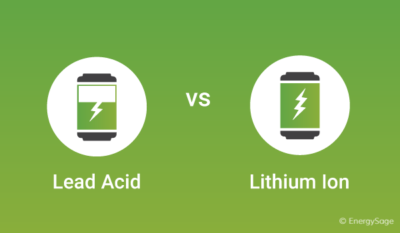
A team of engineers and scientists from the Swiss research center Empa has advanced in the measurement of the ecological footprint of electric cars powered by lithium-ion batteries, a data that until now was complex to find and prevented the comparison between the benefits environmental of this type of propulsion and conventional fossil fuels. According to this research, the result is better than expected in terms of the ecological advantages of electric propulsion through lithium-ion batteries. It has not been an easy task so far, to compare the environmental effects of lithium-ion batteries used in electric cars with those caused by conventionally powered cars. That is why this Swiss research could have a high impact and great application potential, especially in terms of battery performance.
There are many different ways to consider whether one product is environmentally friendlier than another. Lithium-ion batteries do not contain hazardous materials while lead-acid batteries do.
Previous analyses have shown that losses during operation (that is, the energy used to maintain the charge of the batteries), are by far the dominant driver of the carbon footprint of a UPS and its battery system during a cycle of a 10 year life. However, there is not a big difference in operational losses between the two systems. Which leaves out the other? It depends on current use.
Lithium-ion batteries, including the custom ones, need less energy to keep them charged than lead-acid ones. The charge cycle for a lithium-ion battery is 90% more efficient versus 80-85% for an acid lead-acid battery. In addition, lead-acid batteries self-discharge at a higher rate than lithium ion. These efficiency gains, however, are offset by the need for Li-ion batteries to have a battery management system (BMS) to protect against short circuits and overload. This monitoring system consumes energy. So the total operating losses are very similar between the two.
With the dominant factor to determine a carbon footprint of 10 to 15 years basically, other factors must also be considered. Knowing that lithium-ion batteries contain safe materials to be recyclable and that the life of these batteries is 2-3 times longer than lead-acid batteries, we can conclude that lithium-ion batteries are “greener.”
Now, keep in mind that the lead recycling rate from lead acid batteries is 99%, with more than 90% of the batteries collected (in North America. Similar rates occur in Europe and Japan). The recycling of lithium-ion batteries, particularly large format ones (such as those used in electric vehicles and UPS for data centers), have been less widespread so far.
Which product to choose?
Large.net is a Chinese brand of various well-known lithium battery products from China. This company is a giant company that is famous for its various products; LiFePO4 Battery, Lithium Polymer Battery, 12V Lithium Battery, 24V Lithium Battery, and other products especially 18650 Lithium Battery. Sold at relatively cheap prices from similar products, Large.net provides at least four points of excellence;
– 24 hour response
– Solution in 72 hours
– Maintenance for 10 years
– Customized R&D
With all the advantages it offers, buying a lithium battery from Large.net is a profitable option. Low prices, high quality and after sales service are some reasons that should be considered.


